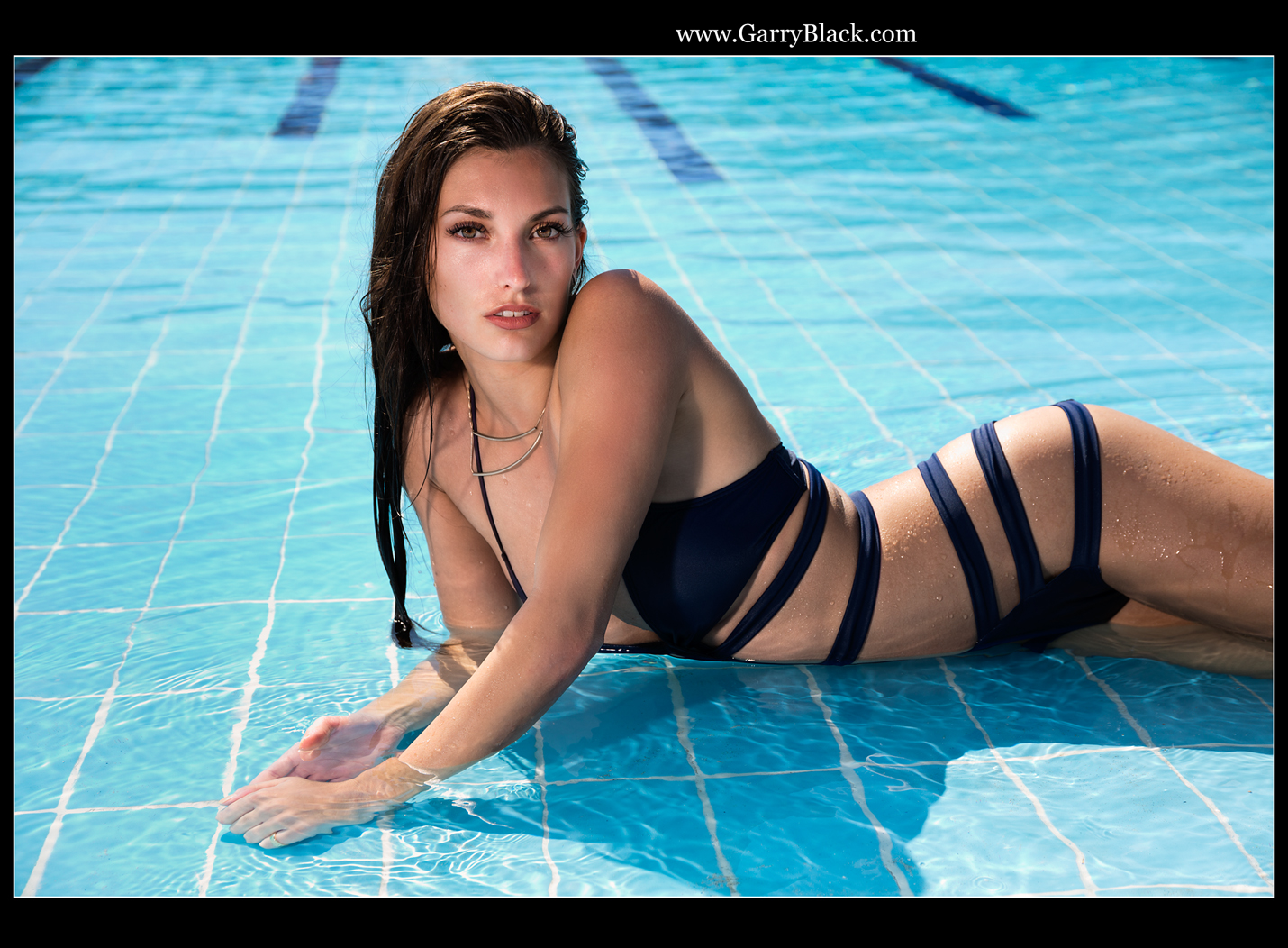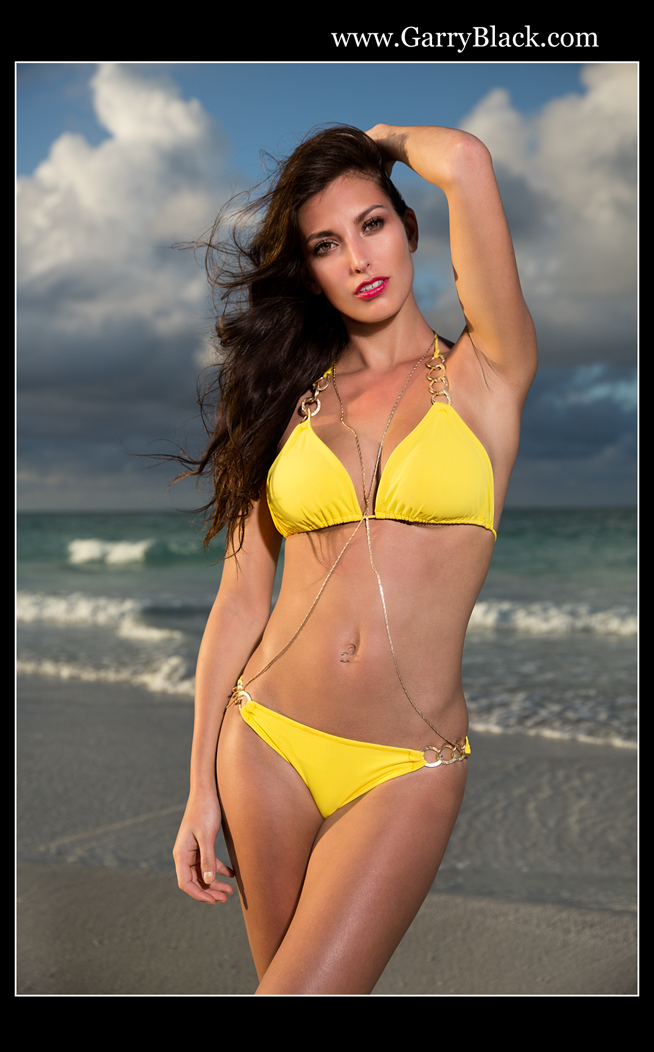Using flash outdoors and on location can be challenging. For most photographers the two main challenges are either the size/weight/bulk of the equipment, or the general technicalities of using flash. Balancing ambient light with flash can be daunting. Many find that using only available light is so much easier because you can “see the light” compared to using flash which you can’t see until the picture has been taken. However once you understand camera flash and how to use the light you’ll be able to shoot in any possible lighting condition and come away with amazing photos.
Many photographers start off trying to use speedlights for outdoor shoots, but unfortunately these small flashes do not have anywhere near the strength to overpower the sunlight. If you are using any light modifiers with them, the light output is even further reduced.
Recently I started using and working with the Phottix Indra 500, which is a 500 Watt TTL portable Studio Light featuring High Speed Sync. This flash is able to overpower the sunlight and when using High Speed Sync (HSS) or Hyper-Sync I can control the lighting completely and achieve amazing results I can set my camera’s exposure mode to manual, aperture or shutter speed priority and the flash to either manual or TTL and have complete technical and creative control I cannot believe how much this has changed location lighting for me, opening up a whole new door of creative possibilities.
The features and tech specs for the Phottix Indra 500 TTL flash are:
*500Ws Studio Light with LED Modelling Light
*TTL Auto, Manual and Stroboscopic (1-100Hz) Modes
*High Speed Sync – 1/8000s shutter speeds, Second Curtain Sync
*Hyper-Sync – 1/8000s shutter speeds – higher power output than using HSS
*Manual Power 1/128 to Full Power in 1/3 Stop increments
*4-Channel Wireless Radio Control with Phottix Odin and Mitros+ systems
*Phottix Odin for Canon and Nikon Receivers Built in, Phottix Strato II Receiver Built in
*Large TFT LCD display, 3.5mm Sync Port and USB Port for Firmware Upgrades
*Battery Powered (400 full-power shots using 5Ah Indra Battery Pack, 0.1s to 2s recycle times)
*Weight: 2.1kg, Dimensions: 267mm L x 140mm Dia x 190mm H
These are powerful flashes. They are around nine times stronger than my Canon 580 EXII flash, which is Enough to overpower the harsh mid-day sun. They also come with a built in LED modeling light, not overly bright, but it definitely works. We used this modelling light with an 80cm Octobox for a night time, totally dark, outdoor shoot, and the modeling light gave enough light to see and also focus with.
The Indra 500 can be used in either TTL (which uses Through The Lens metering) or in complete manual mode. It has 8 stops of power adjustments, ranging from full power to 1/128, which gives you the ability to overcome the midday sun or add just a hint of light. You can also shoot wide-open with large apertures and fast shutter speeds up to 1/8000s with HSS and Hyper-Sync. The Odin receivers for Nikon and Canon are built into the flash, however you will need a Phottix Odin TCU (transmitter). Using the Odin I have full control of the flash from the camera position, with the ability to adjust the output and switch from manual to full TTL. The range for the Odin is rated at 100 metres, great for sports and action photographers. While I don’t require such a huge distance from the flash what I do need is the reliability of the trigger/flash. It hasn’t disappointed me.
Setting up the Hyper-Sync is very simple. Everything is done right from the camera using the Odin TCU. Basically all you have to do is take a picture. If a black band appears you just change the timing setting on the TCU. It took me less than one minute to get the settings for each of my cameras to sync up to 8000th sec. Hyper-Sync is different than High Speed Sync (HSS). Hyper-Sync is a calibrated time delay that ensures the camera shutter is open during the moment when the flash pulse fires. This gives you an extra stop or two more than HSS.

Indra 500 TTL using HSS
Canon 5D MKIII – Sigma 24-105 ART Lens
Lens (mm): 74
ISO: 250
Aperture: 4.5
Shutter: 1/2000
The Odin TCU has four wireless channels and three flash control groups. The Indra can be controlled in TTL ratio modes A:B with EV +/- adjustments of three stops. You can also adjust the flash EV from the camera’s built in flash exposure compensation dial. A fantastic and unique feature of the Odin is the ability to designate groups in different modes TTL/Manual. The individual groups, A, B, C, can also be controlled in TTL mode with EV +/- adjustments that can be adjusted in +/- 3 EV levels. Groups can also be set to Manual mode, adjusting power levels remotely, or turned off. The Phottix Odin system will also trigger compatible non-TTL flashes and studio strobes. The Indra can also be used with any wireless Transmitter and receiver (Pocket Wizard, Cactus, Yongnuo) however the flash is in complete manual mode.

Indra 500 TTL using HSS
Canon 5D MKIII – Sigma 24-105 ART Lens
Lens (mm): 62
ISO: 160
Aperture: 6.3
Shutter: 1/400
The Indra 500 is quite compact. Part of the reason for that is because it has a separate battery pack. The Profoto B1 which is a similar unit has a built in battery, which some people like. Personally, I prefer a lighter weight head with a separate battery pack, that distributes the weight so it’s not all on top of the light stand. While working outside I have found out, the hard way, light stands that are top-heavy blow over a lot easier. Using a lighter weighted head and the battery to weigh down the bottom of the light stand helps a lot, having sand bags is a good idea as well. The battery pack has 2 outlets for strobes or a flash each which can be connected and powered at the same time. The recycle times for the flash are very quick, I never find that I have to wait for the flash to recycle to take the next picture. It has a LED display to show the remaining power. I haven’t gauged it but the charging time to recharge the battery is fast, my guess would be somewhere around 3 hours when it’s completely drained. The battery is permitted as carry-on baggage for airlines, which is a big plus me as a travel and location photographer.

Indra 500 TTL using HSS
Fill in Flash in late afternoon.
Canon 5D MKIII – Sigma 24-105 ART Lens
Lens (mm): 57
ISO: 200
Aperture: 5.0
Shutter: 1/1600

Indra 500 TTL using HSS The flash was set to -1.3 EV for slight fill using a shoot through umbrella
Canon 5D MKIII – Sigma 24-105 ART Lens
Lens (mm): 68
ISO: 320
Aperture: 5.6
Shutter: 1/1000
The flash is well constructed and has a solid feel to it. The size and weight makes it easy to carry and set up. The head uses the Bowens “S” mount quick release. This mount is very easy to attach and remove light modifiers, it is also the most readily available mount for accessories.
As a studio shooter I use manual settings for my camera and flash. I can still do this with the Indra 500 but I also have the option of setting the camera on manual exposure and setting the flash on TTL. I can also use aperture priority and TTL, this would be great for shooting events and weddings where you don’t have a lot of time to set up and take exposure readings. I have to confess since I have been using the Indra 500 I have been using the TTL setting on practically all of my outdoor shoots, it is amazingly accurate. When shooting in harsh sunlight I can use shutter speeds that are higher than the sync speed (usually 1/200 or 1/250 sec) by using HSS or Hyper-Sync, it is so easy. When the Odin is set to HSS the flash seamlessly switches into HSS when needed or uses slower speeds depending on my aperture settings and ambient lighting – I no longer have to think about what shutter speed I’m using. This is pretty amazing for me, because I am one of those photographers whose main objective is the photo, not the technology. When I don’t have to worry or think about any of the technical settings I am free to concentrate on creativity.

Indra 500 TTL and a Phottix Mitro+ behind model on camera left
Canon 5D MKIII – Sigma 24-105 ART Lens
At nearly half the price and with more features and almost double the battery capacity of the Profoto B1, the Indra500 is an exceptional value. It makes using flash simple, it has lots of power, it’s reliable, well built, very portable and easy to set-up on location shoots. This light is just amazing!!! It definitely is a great choice and tops my list of recommendations for flash lighting gear.
PROS:
* Exceptional value – half the price of the competition with more features and almost double the battery capacity
* Opens up a whole new door of possibilities to be creative on location
* 500w/s = 9 times more powerful than my most powerful speedlight, allows me to do full length body shots while overpowering the sun
* Seamlessly switches into HSS when needed – I no longer have to think about my settings or limit my creativity
* Full control of the flash from the camera position using the Odin, from manual to full TTL
* Hyper Sync gives me more light to freeze the action at super-fast shutter speeds
* Can fully trust the TTL system to give me exactly what I need
* Consistent light output even at high shutter speeds
* Very portable and easy to set up
* Very well made, solid construction, not a cheap “plastic” feel
* Uses the Bowens “S” mount – the most universal mount available
* Very fast recycle times and battery charging time
* I found that it was more than fast enough in the studio, it never slowed me down
* Can be used with existing Phottix flashes and receivers
CONS:
* I only have one, I’m going to have to purchase a second.
Available at the following dealers:
L.L. Lozeau https://www.lozeau.com/
Henry’s http://www.henrys.com/
Don’s Photo http://donsphoto.com/
The Camera Store http://www.thecamerastore.com/
Lord Photo http://www.lordphoto.ca/
